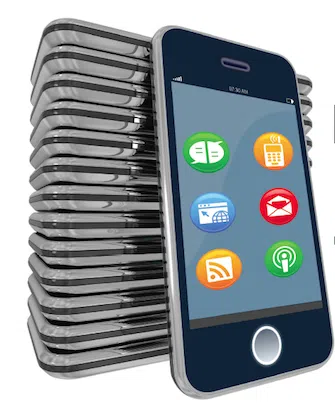Getting your foot in the door relies on persistence, exposure and serendipity. Converting customers requires impeccable service and rapid response.
Picture this: A local hotel is hosting an ice sculpture event and the refrigeration system goes on the blink. Sculptures start to melt, the ice rink turns into a slush rink and the hvacr company in charge of the hotel account can’t fix the problem. Hotel employees frantically scamper around trying to figure out what to do to stop this frigid nightmare.
The facilities manager remembers that another hvacr company stopped by to offer its services in the event of an emergency. This is an emergency. He calls the company and within the hour help is on the way. Like Marvel Comics’ Iceman, who uses his sub-zero powers to pull moisture out of the air and lower its temperature to below freezing, Donelson Air Conditioning’s commercial refrigeration technician saves the day.
“Not only did we go over and fix the immediate problem, but they were so impressed that they asked us to staff that person onsite throughout the weekend to make sure if the problem came up again that he was there to fix it,” says Dean Fulton, general manager of the Nashville-based hvacr company. “What ended up being a call to fix a piece of refrigeration equipment ended up being a weekend’s worth of billings and they are still a customer to this day.”
Being in the right place at the right time certainly pays off when you are in the service industry. But you can’t create serendipity — can you?
According to Fulton, most customers already have an hvacr provider. The goal for Donelson is to make sure they are the customer’s next choice when their current providers can’t or won’t service the problem. In short, they want to be the backup plan.
“We feel that once we get the opportunity to show them the response time and quality of service we provide that will be the conversion,” says Fulton. “We are just looking for a chance.”
The key is grabbing the chance and really showing the customer that they need your service.
Apparently being the backup pays off. Donelson has over 10,000 commercial customers and 1,500 active service agreements, which Fulton credits as the heartbeat of the organization.
To make sure they are No. 2 on the speed dial lists of competitors’ clients, Donelson uses good old-fashioned networking.
In fact, it requires 10 new touches per week per salesperson and lives by the rule: Give a business card, get a business card.
In terms of marketing to the light commercial market, there are no magic bullets like there are for the residential market (direct mail, TV commercials or radio advertising), notes Fulton.
“There’s a very limited group that you are actually searching for. Your best bet is to invest in your people and network and have those people build their independent networks.”
Considering that light-commercial business owners and managers aren’t trained in hvacr, when a problem arises they need to remedy the situation quickly. To do that they have to have a dependable supplier.
“Response time has to be the key,” explains Fulton. “Their businesses require a comfortable environment for employee productivity and customer retention. You have to be staffed enough to be able to go and respond quickly and with competent service.”
However, staffing on the commercial side is much different than residential. Commercial technicians’ skill sets have to be broader because of the broader variety of equipment. On the commercial side there is more of a fix-it environment than a replace-the-equipment environment.
For Monrovia, Calif.-based Air-Tro Inc., a $7 million contractor that services the greater Los Angeles area, finessing difficult customers is one of the keys to its success.
Bob Helbing, president of Air-Tro, loves difficult customers — the more ornery the better in his book.
“Frankly, a customer like that can be very valuable for us because they will treat everybody that way and a lot of service suppliers will say I don’t want to deal with this guy,” says Helbing. “If you can build a working relationship, even with difficult people, then it can work very much to your advantage.”
But Helbing notes that there are other times when the frustration level is too high to be productive.
“Sometimes you have to be able to say you are not going to renew a service contract. It’s a business decision.” Helbing suggests that companies keep track of profitability by customer to ensure that the decision is a sound one. If you realize you are not making money with a certain customer, it’s time to sever the relationship.
Like Fulton, Helbing believes in making opportunities.
To do so, he continues to practice what his father put in place at the company 25 years ago — an aggressive telemarketing program on the commercial side.
“We don’t telemarket on the residential side, and nowadays it’s almost illegal, but those rules don’t apply to commercial,” says Helbing. “I’ve never found any other way to successfully market to commercial accounts other than telemarketing.”
Air-Tro employs a full-time telemarketer and purchases mailing lists. The company doesn’t mail to these people, it just uses the list to make telephone calls. And according to Helbing, it takes a dedicated telemarketer to be successful — someone who is willing to make 100 calls a day and have 97, 98 or 99 people tell them no.
“There are a lot of telemarketers out there, but there aren’t a lot of good ones,” says Helbing.
When you do find a good one, it’s well worth it. The next step is to find a good field salesperson to close the deals. So the telemarketer sets up appointments and the field salesperson evaluates the site and prepares maintenance proposals.
For many light commercial accounts, finding the proper contact is more than half the battle. Doing research and getting to know the customer before you show up for the sales call can be very helpful. In many instances, the building’s management company is based out of state. Your task is to find out who makes the local phone call to your service.
“That person connects you inside their organization,” explains Donelson’s Fulton. “If you can make that person’s life easier, they will connect you to the right people. Getting to the phone caller is sometimes more important than trying to find out who is the decision-maker.”
With 10 million people in Los Angeles County, Air-Tro has a wealth of potential accounts and myriad decision-makers to contact, as well as a lot of competition.
“We have more people here than most states and there are a lot of other people in the trade, so you can’t take any customer for granted,” says Helbing, who notes that the healthy competition benefits everyone.
“Nobody’s perfect, we make mistakes and we’ll lose customers over a mistake,” says Helbing. “But by the same token, when our competitors track mastic over the president’s carpeting I will get the account. The way you capitalize on those events is to maintain your top-of-mind awareness in the community.”
Donelson capitalizes on competitors’ mistakes by always being available. According to Fulton, the company has built hundreds and hundreds of loyal customers by running nighttime and weekend calls — all without overtime charges. To do so, it stages its technicians where nights and weekends are considered regular business hours.
Another tactic, the company never lets a customer die in its system.
Companies go out of business all of the time, but the buildings and the equipment remain. “Those are the best leads because you have a reason to stop by,” says Fulton. “You can let them know that you used to take care of this building and know the equipment very well. It’s very attractive to someone who is managing a building if you already have experience with where the equipment is and have the history.”
A trick of the trade that Air-Tro incorporates: documentation.
According to Helbing, there was a dispute with a school the company services. Air-Tro provides the service and another company replaces the equipment. When the other company’s tech replaced the equipment he told the customer that the filters were plugged and hadn’t been changed in over a year.
Fortunately for Helbing, when his service techs replace filters they use a date stamp to stamp all of the filters.
“I pulled out a filter and it had been changed three months ago during the last routine service call. It was plugged, but we had an extremely hot summer and the equipment had been running 15 hours a day.
“So rather than me having egg on my face, I was able to actually increase sales for that customer. In a competitive environment you have to be at the top of your game.
“Companies make their bread and butter doing something that is not related to heating and air conditioning,” adds Helbing. “As far as they are concerned, heating and air conditioning is a headache they’d like to pass on to somebody else. Someone they can rely on without constantly having to check on and check pricing. It is an issue of trust and credibility. If you are that person, when the competition calls they will say, ‘We’re good and aren’t ready to change.’”
Traci Purdum is a former editor of HVACR Business.


